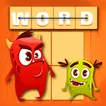


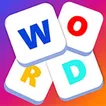

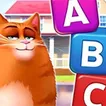
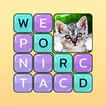
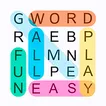
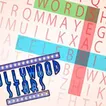
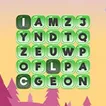

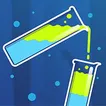
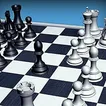
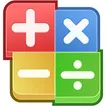

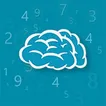
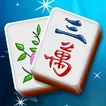
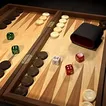
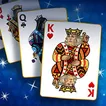
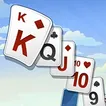
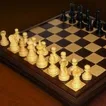

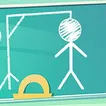
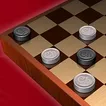
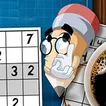
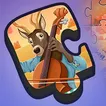
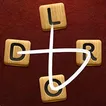

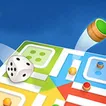
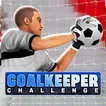
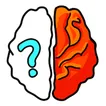


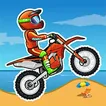







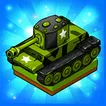










Word Search Games: Engage Your Brain with Puzzles Online
Word search games have long been a staple in the realm of puzzles, offering a delightful blend of entertainment and mental stimulation. With the advent of the digital age, these classic pen-and-paper puzzles have seamlessly transitioned to the online world, making them more accessible than ever before. Players can now indulge in a myriad of free word search puzzles with the click of a button, enjoying the convenience of engaging their brains anytime, anywhere.
The allure of word search games lies in their simplicity and the cognitive benefits they provide. As players scan the grid of letters to find hidden words, they are not only enhancing their vocabulary but also exercising their brain’s ability to recognize patterns and focus on details. This form of mental workout is beneficial for people of all ages, from young children expanding their word bank to adults keeping their minds sharp.
In addition to the traditional word search experience, the online versions often come with a variety of themes and difficulty levels, catering to a wide audience with diverse interests and skill sets. Whether you’re looking for a quick break from work or an extensive brain teaser, there’s a puzzle out there to meet your needs.
For those who prefer the tactile sensation of pencil on paper, printable versions of word search puzzles are readily available for offline enjoyment. This option is perfect for situations where screen time needs to be limited or when you’re on the go without internet access.
Overall, online word search games continue to captivate puzzle enthusiasts around the globe. They not only provide a fun and engaging pastime but also serve as a valuable tool for cognitive development, proving that sometimes, the simplest games can have the greatest impact on our minds.
Explore the Evolution of Word Search Puzzles
Tracing the lineage of word search puzzles is akin to unfolding a map of human ingenuity in leisure. The origins of these puzzles are somewhat nebulous, with various forms of word-finding challenges appearing in different cultures over the centuries. However, the modern word search as we know it—a grid of letters with words hidden horizontally, vertically, diagonally, and even backwards—gained popularity in the mid-20th century.
Initially found in magazines and puzzle books, word searches were a hit for their simplicity and the joy of discovery they provided. As technology advanced, so did the puzzle format. The leap to digital platforms revolutionized the way these games were consumed and shared. No longer confined to the printed page, word searches found a new lease of life online.
The digital transformation brought with it a host of modern features. Interactive elements, such as timed challenges and leaderboards, introduced a competitive edge. The ability to generate new puzzles on demand ensured that players would never run out of fresh content, while difficulty settings allowed for a tailored puzzle-solving experience, from the novice to the expert.
Moreover, the global reach of the internet meant that word search puzzles could be enjoyed in multiple languages, broadening their appeal and accessibility. This evolution from paper to pixels has not only preserved the essence of word search puzzles but has also expanded their potential, making them a timeless form of entertainment that continues to evolve with the times.
Word Search Puzzles as Educational Tools
Word search puzzles are not only a source of amusement but also serve as potent educational tools. They have a unique way of reinforcing vocabulary and spelling in a context that is both engaging and instructive. As players search for words, they are often exposed to new terms, which in turn can enhance their language skills and comprehension.
The educational value of word search puzzles extends to pattern recognition and problem-solving abilities. The challenge of locating words amidst a jumble of letters requires focus and analytical thinking, skills that are transferable to many other areas of learning and everyday life. For children, these puzzles can be a playful way to introduce new words and concepts, while for adults, they can be an effective means to maintain cognitive flexibility and memory.
In classroom settings, word search puzzles can be tailored to specific subjects, reinforcing the terminology of science, history, or literature. Teachers often use them as a fun method to review material or introduce a new topic, making learning an interactive and enjoyable experience.
Furthermore, the simplicity of word searches makes them accessible to a wide range of age groups and skill levels. They can be easily adapted to suit the learner’s needs, whether by choosing puzzles with age-appropriate words for children or by selecting more complex and technical terms for adults.
By turning the task of vocabulary building into a game, word search puzzles encourage continuous learning and curiosity. Their versatility and adaptability as educational tools are what make them an enduring and valuable component of both formal education and casual learning environments.
Customize and Share Your Word Search Experience
The digital era has not only made word search puzzles more accessible but has also introduced an exciting feature: customization. Players can now create their own word search puzzles, choosing the words, themes, and difficulty levels that suit their preferences or educational goals. This personal touch transforms the puzzle-solving experience from a solitary activity into a shared endeavor.
Customization allows for a tailored experience, enabling users to focus on specific areas of interest or study. For instance, someone with a passion for astronomy can create puzzles with related terms, while a language learner might concentrate on words in their target language. The possibilities are endless, and the process of creating a puzzle can be just as engaging as solving one.
Sharing these custom puzzles is a breeze in the online space. Whether it’s through social media, dedicated puzzle forums, or educational platforms, users can distribute their creations far and wide. This sharing not only fosters a sense of community among puzzle enthusiasts but also encourages collaboration and learning. Friends can challenge each other with their personalized puzzles, and teachers can design puzzles that align with their lesson plans, adding an interactive element to their teaching toolkit.
The ability to customize and share word search puzzles enriches the experience by adding a creative outlet and a social dimension. It empowers users to become creators, not just consumers, of content. This level of engagement can lead to a deeper appreciation for the intricacies of language and puzzle design, making the humble word search a powerful tool for both personal enjoyment and communal exchange.